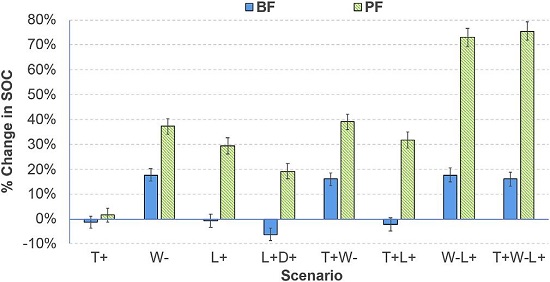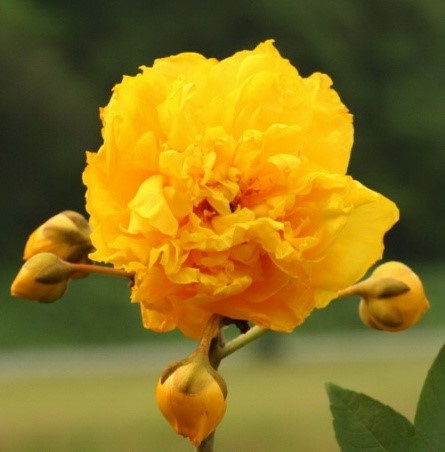

Researchers from Dinghushan Forest Ecosystem Research Station of South China Botanical Garden, Chinese Academy of Sciences (SCBG) provide strong evidence of microbial control over soil carbon (C) decomposition and suggest the future trajectory of soil C may be more responsive to changes in soil moisture than temperature in subtropics.
Large uncertainties remain in C model simulations and predictions due to the lack of explicit parameterization of microbial data and few applications beyond the laboratory scale. In addition, most experimental and modeling studies of warming-induced changes in soil C focus on temperature sensitivity, neglecting concomitant effects of change in soil moisture.
"We parameterize a microbial model against long-term field measurements of heterotrophic respiration and microbial biomass, which to our knowledge is novel due to the lack of available data and few models using microbial parameters as calibration targets. Our study implies that current emphasis on the temperature response in microbial models may be underestimating the importance of soil moisture, particular in subtropics." said Prof. ZHOU Guoyi, a chief researcher from SCBG.
Significant soil organic C (SOC) accumulations have been found in subtropical forests under natural conditions, but the driving forces are not well understood owing to multiple confounding factors. Prof. ZHOU Guoyi and the international team simulate SOC trajectories in response to chronic changes in soil moisture, temperature and litter. This study suggests that decreasing soil moisture is the prominent direct factor for observed increasing SOC accumulation in subtropical forests.
This research has been published online in Soil Biology & Biochemistry (https://www.sciencedirect.com/science/article/abs/pii/S0038071718304279).

Figure. Percent (%) change in total soil organic carbon (SOC) in the simulations by the model under different scenarios compared to the control scenario. Scenarios include increasing soil temperature (T+), decreasing soil moisture (W-), increasing litter (L+), litter increase with increasing labile fraction (L+D+), and joint scenarios of two factors (T+W-, T+L+, and W-L+) and all three factors (T+W-L+)

